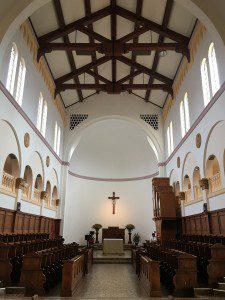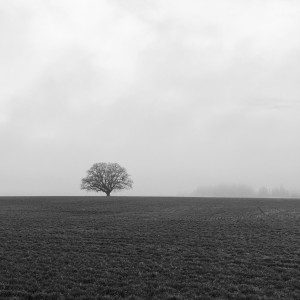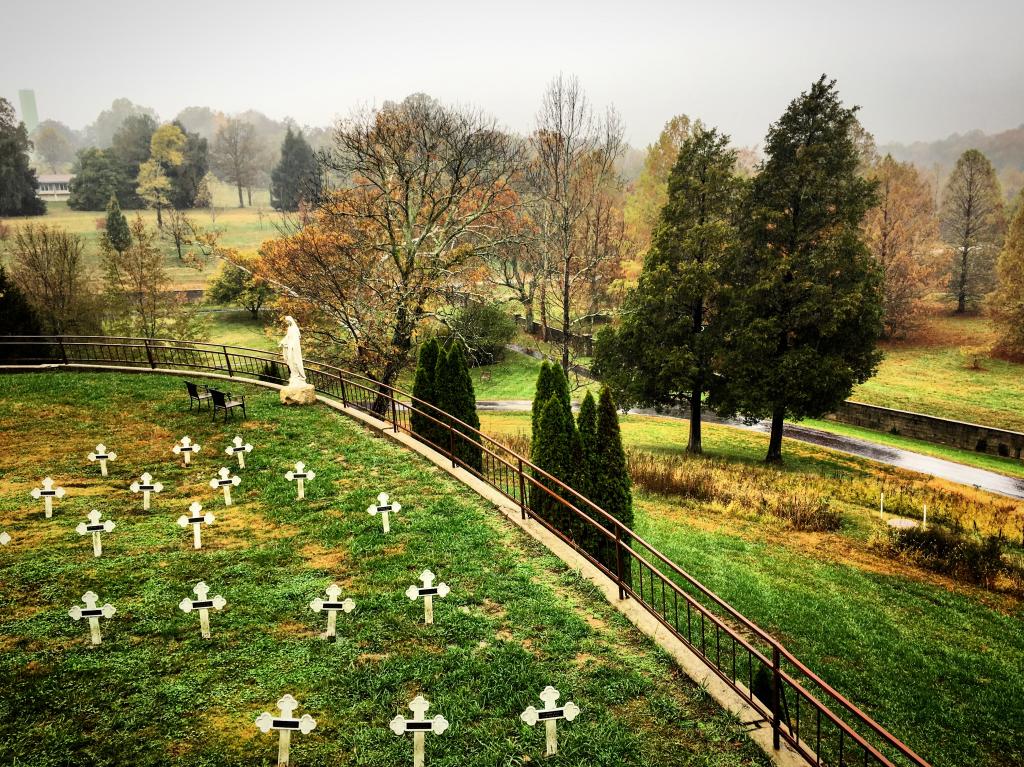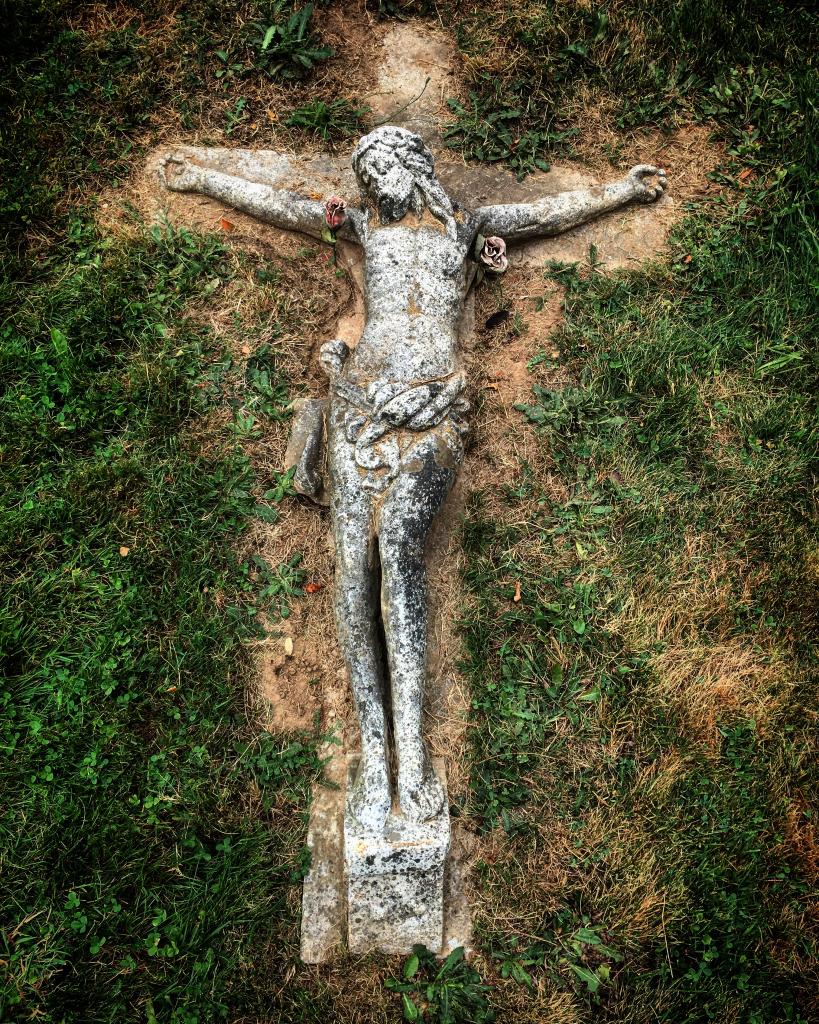
Krista Tippett, the gifted radio journalist who hosts the popular On Being radio show and blog, recently published an article in the Jesuit America Magazine. The article is an optimistic assessment of the future of religion in the hands of an increasingly irreligious generation we all know as “Millennials.”
While many are wringing their hands at the decline of religious identity and church attendance among nearly 1/3 of those under 30, Tippett boldly proclaims: “The new nonreligious may be the greatest hope for the revitalization of religion.” Tippett identifies these ‘spiritual but not religious’ with an emerging ‘21st century reformation,’ wherein the traditional markers of Christian or religious identity are shifting, not disappearing. Her comments resonate with writers like Episcopal Priest Matthew Wright or Camaldolese monk Cyprian Consiglio who are calling this shift the ‘Second Axial Age,’ comparing it to first Axial Age, which was responsible for birthing the world’s major religious traditions between 900-300 BCE.
Tippett doesn’t blame many of the young for feeling repulsed by religion. The political debates of the 1980s and 90s were filled with toxic moralizing, culture warriors that hardly seemed to embody the love we were taught was the essence of the God we were supposed to be worshiping. The new forms of religiosity she sees defy many of modernism’s supposed conflicts: New Monastics like Adam Bucko and Rory McEntee are reinventing community and liturgy; curiosity and wonder are transcending the crusty debates between religious and scientific certainty; and a passion for social jus
tice is melting the supposed divide between secular and sacred. She writes:
“I see seekers in this realm pointing Christianity back to its own untamable, countercultural, service-oriented heart. I have spoken with a young man who started a digital enterprise that joins strangers for conversation and community around life traumas, from the economic to the familial; young Californians with a passion for social justice working to gain a theological grounding and spiritual resilience for their work and others; African-American meditators helping community initiatives cast a wider and more diverse net of neighbors. The line between sacred and secular does not quite make sense to any of them, even though none of them are religious in any traditional form. But they are animated by Martin Luther King Jr.’s vision of creating “the beloved community.” They are giving themselves over to this, with great intention and humility, as a calling that is spiritual and not merely social and political.”
The decline in traditional religious observance is a sign of the shape of religion to come, not the death knells of religion as we know it.
 Conservative writer Rod Dreher on the other hand, has a different approach. Convinced by Alasdair MacIntyre’s critique of modernity in After Virtue who writes: “What matters at this stage is the construction of local forms of community within which civility and the intellectual and moral life can be sustained through the new dark ages which are already upon us” (my emphasis), Dreher sees Christian culture becoming dangerously thin in the wake of modernity. He thus calls on Christians to adopt the ‘Benedict Option’ or, a communitarian vision rooted in the wisdom of the 1,500 year old Rule of Saint Benedict. He defines it this way:
Conservative writer Rod Dreher on the other hand, has a different approach. Convinced by Alasdair MacIntyre’s critique of modernity in After Virtue who writes: “What matters at this stage is the construction of local forms of community within which civility and the intellectual and moral life can be sustained through the new dark ages which are already upon us” (my emphasis), Dreher sees Christian culture becoming dangerously thin in the wake of modernity. He thus calls on Christians to adopt the ‘Benedict Option’ or, a communitarian vision rooted in the wisdom of the 1,500 year old Rule of Saint Benedict. He defines it this way:
“The “Benedict Option” refers to Christians in the contemporary West who cease to identify the continuation of civility and moral community with the maintenance of American empire, and who therefore are keen to construct local forms of community as loci of Christian resistance against what the empire represents.”
American Christianity has become to individualistic, too patriotic, and too cozy with the norms and assumptions of modernity. The Enlightenment project created a world of science and democracy, but also of “moral chaos and fragmentation.”
Dreher is not a utopian, or an escapist, but his view of contemporary religious scene differs greatly from that of Tippet. While Tippet is optimistic about the energy and possibility in the rising generation, Dreher seeks to circle the wagons so that Christianity can revitalize itself from within. “Voting Republican, and expecting judges to save us, is over. It’s all about culture now.”
Dreher thus looks to Saint Benedict (480-553), the Italian monk who in the 6th century fled the corruption of a defeated Rome for the solitude of the forest. He eventually gathered a community around him, and wrote his famous Rule. For Dreher, Benedictine monasticism can teach the whole of Christianity many lessons about authentic Christianity, without necessarily requiring that we all become celibate monastics.
He writes, “The monasteries were incubators of Christian and classical culture, and outposts of evangelization in the barbarian kingdoms.” For Dreher and many others, Christianity is not a worldview or system of beliefs, but a way of life. Thus community must begin not just with beliefs and morality but praxis. How shall we live? This means creating community boundaries and norm that form Christians in a way of life. It means balancing work and prayer, but also making our work a prayer. It means not just going to church on Sunday, and then returning to 9-5 job during the week. Dreher also admonishes Christianity to learn the monastic virtue of Stability: or, learning how to stay put, and seeing what places and people have to teach us. We need, Dreher suggests, to learn how to live in community again, because community living informs who we are and what we are called to be.
Dreher and Tippet stake out seemingly opposite assessments of the state and future of religion, particularly Christianity. However, I think that both hit on important tasks for religious culture in the coming years.
- We do need to bust open the polemical opposition between religion and science which has only served to entrench fundamentalisms on both sides.
- We do need a deeper commitment to place and community that is not rooted in pleasure and ego fulfillment. A community is not a group of people who agree on everything, that is a clique.
- As with the recent conversations regarding refugees, we need a consistent moral compass that does not obsess over ‘pelvic’ issues, or abortion, but the broad principles of a moral society. For example a consistent ethic of life would care about the number of abortions, and the destruction of ecosystems.
- We need to integrate our work and our spiritual lives. Many of us do not want to live a compartmentalized life between work and religion. We feel a call to vocation, a mission in the world that is both fulfilling and provides for our needs. This has as much to do with democratizing the workplace as it does with renewing skills and crafts from which we can make a living.
In the end, I agree with both Tippet and Dreher, the future of religion is bright, but we can’t all hold the same candle.












